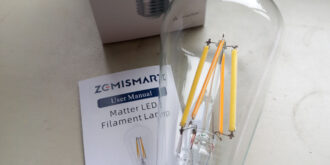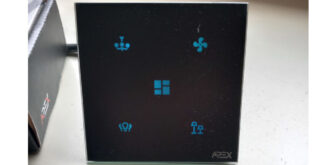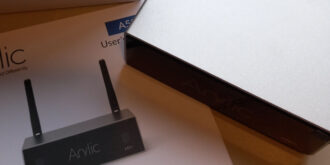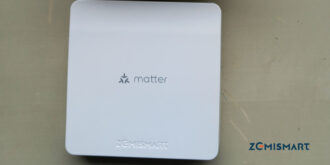Are smart door locks safe? Or not be trusted?
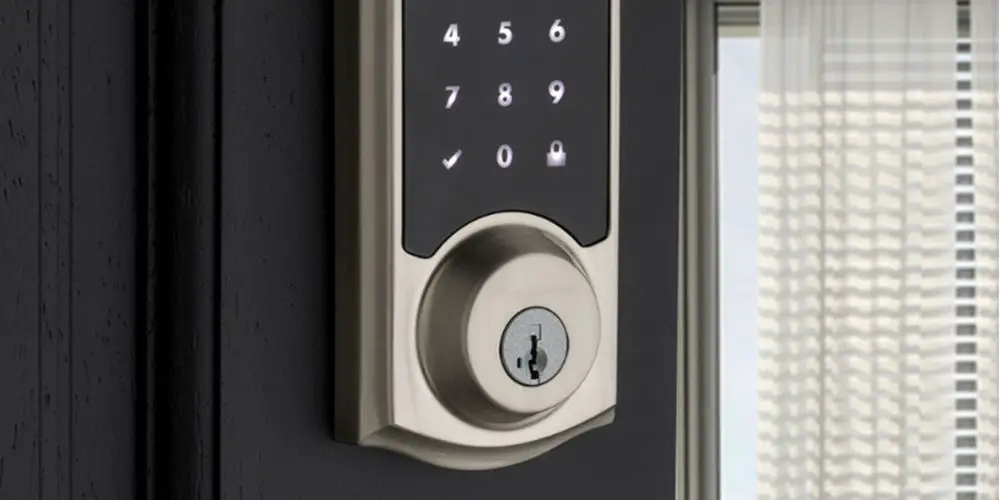
As many homeowners look to build a smarter home, they consider investing in a smart door lock. For some, there’s an inherent problem, leading them to wonder are smart door locks safe? Or should I keep using a traditional deadlock?
According to the Office for National Statistics, 76% of burglars enter a home through the front door. So, choosing a new front door lock can have a long-term impact on how secure your home is.
Many of us are comfortable using a smartphone with apps and a voice assistant. Most homes now have a smart TV or a streaming stick that connects to the internet. We’re all using smart home technology to some degree without thinking.
Some homeowners have spent thousands investing in a smart home system that controls lighting, heating, blinds, and basic security. They understand how powerful technology can be in helping them live better and keep their homes safe from the less savoury elements.
We’re often asked our opinion on smart door locks, and if they offer any improvement over the traditional options. So, we aim to answer: Are smart door locks safe?
What are smart door locks?
The most basic questions you might have is: What is a smart lock, how do they work and are smart door locks safe?
Simply put, a smart door lock offers a keyless entry to your home. A few different options are available. Some models easily integrate with your existing door lock. Others are self-contained units that replace your lock.
In addition to keyless entry, some smart door locks allow a user to open their door remotely. Ideal for letting the cleaner, handyman or kids in while you’re at work. With a few taps on your smartphone, you can grant access.
Some units log every time the lock is touched. So you to see who’s opened it or has tried to and at what time. Having these data logs can ensure your home is always secure.
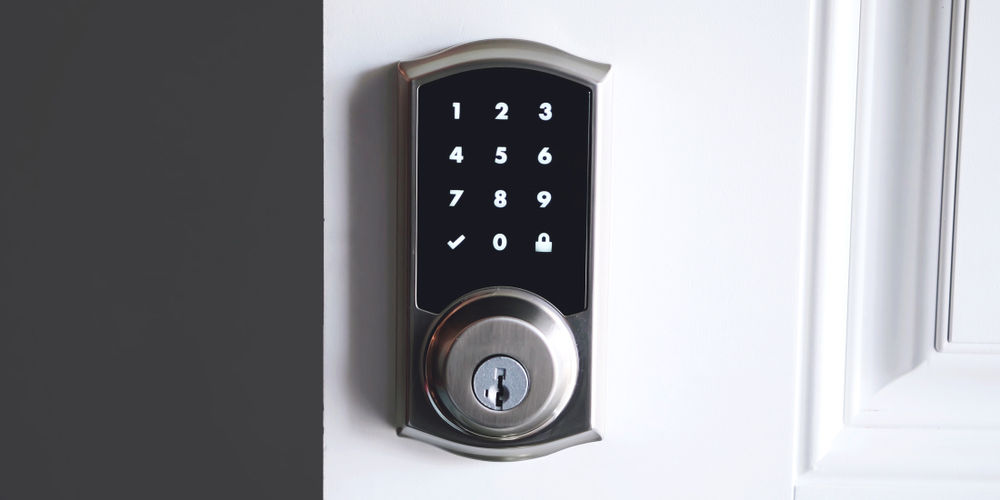
How do smart locks work?
There are a few ways to open a smart door lock without a key that still keep your home secure.
PIN Pads
The most popular method is to use a numeric PIN pad that allows access to your home after entering a 4- or 8-digit key code.
Some models will allow you to type a string of digits in and will unlock if you enter the correct passcode somewhere in the longer sequence. Doing this allows you to hide the real code, thwarting potential burglars. Of course, you could enter the passcode only.
Most smart door locks will allow you to set multiple passcodes, enabling you to create one for the cleaner, which can then be deleted later. You can create another for your kids, deliveries and friends, allowing you to track who opens your door and easily remove access.
Tag, card or key fob
With some options, you can also use a key forb, credit-card sized card or tag to unlock your door. These are fantastic for family members who don’t need to memorise a code but still need quick access.
App
The basic idea of using a key fob has been updated for the 21st century. You can now install an app on your smartphone that acts similarly. Simple, swipe your phone near the lock and it will open. It’s not too dissimilar to making a contactless payment.
You can also use the app to grant access at the push of a button.
Bluetooth
Some smart locks track your location and use Bluetooth to unlock your front door as you approach. Thanks to the short range of Bluetooth, it’s ideal for unlocking doors automatically without impacting the security of your home.
Voice assistant
Many smart locks are compatible with Alexa, Apple Homekit and Google Assistant. Simply, ask your chosen voice assistant, and they’ll lock the door.
Smart home systems
There are some models of smart door locks that work with Z-Wave, Zigbee and even Control4 and Crestron. So, you have options if you’re trying to create a fully automated home without any integration headaches or nightmares.
Can I still use a key?
Opening your front door using your phone sounds great until you consider what happens if you lose your phone, it gets damaged or simply runs out of battery. Never fear as there’s a solution. Most smart locks come with a physical key, card or fob allowing you access. Spares are sold separately.
Many smart locks work with your existing deadbolt, meaning you can use a key if required. They offer an improvement in security both when tested by a locksmith and under real world pressures.
Another option is granting permission to other household members who can allow you access to your home remotely if you don’t have your smartphone or it’s dead.
What happens at night?
Some smart locks offer a night-time mode that automatically locks your home overnight, disabling any auto-unlocking settings for extra security.
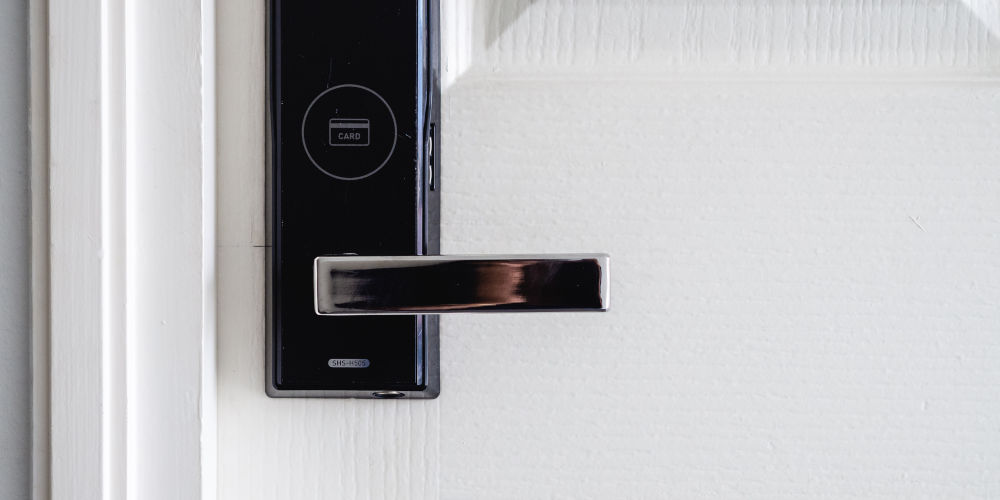
Are smart door locks safe? or Can smart door locks be hacked?
Every lock has some vulnerabilities, regardless of whether it’s a smart lock or a manual one. Manual locks can be picked. Smart door locks can be hacked or removed.
Locks that use Bluetooth technology to operate can be hacked via device spoofing and other nefarious means.
However, smart locks that use a combination of Bluetooth and Wi-Fi, have an additional layer of security. Some can lock automatically or send a notification to the user when the lock’s knock sensor is triggered.
Can you keep your smart lock safe?
Most burglars are professional opportunists. They actively look for easy access to a property. If they can’t easily enter a building, they move on. If you are complacent with your home’s security, you’re creating opportunities for burglars.
It’s vital that you’re proactive in keeping your smart lock safe and as secure as possible. Thankfully, there are several ways for you to ensure your home is protected. These include:
- Updating your smart lock’s password/PIN code regularly
- Only share your smart lock password/code with people in your household
- Changing your password or passcode immediately after sharing it with anyone who’s not in your household (e.g. cleaners, builders, gardeners etc.)
- Using temporary access codes for people not in your household (e.g. cleaners, builders, gardeners etc.) and deleting them after they complete their task
- Keep apps up to date
- Reviewing logs weekly (if possible).
Do smart locks offer improved security over regular locks?
Smart locks are more convenient, you never need to worry about losing keys again or having to be home to let the cleaner in. But are you trading convenience for security?
As we’ve already stated, both traditional and smart locks have vulnerabilities. The biggest of which is human error.
It takes a second for a burglar to locate a spare key under the door mat or spot you’ve left the keys in the door and have walked away. Smart devices require a determined and capable cybercriminal to hack them.
If you’re using an app with a smart lock, should someone get access to your phone, they can lock and unlock your door without you noticing. Regardless of how well-intended they are, this can still pose a massive security risk.
Sadly, if your home is targeted by an experienced, skilled and determined burglar, they will know how to bypass what lock you have, whether it’s smart or conventional.
Bear in mind that most burglars are opportunists, looking for easy targets. They are more likely to try to gain entry if they see you place keys under a mat than hack a smart lock. Remember, hacking is a specialist skill set that takes time and expertise to master.
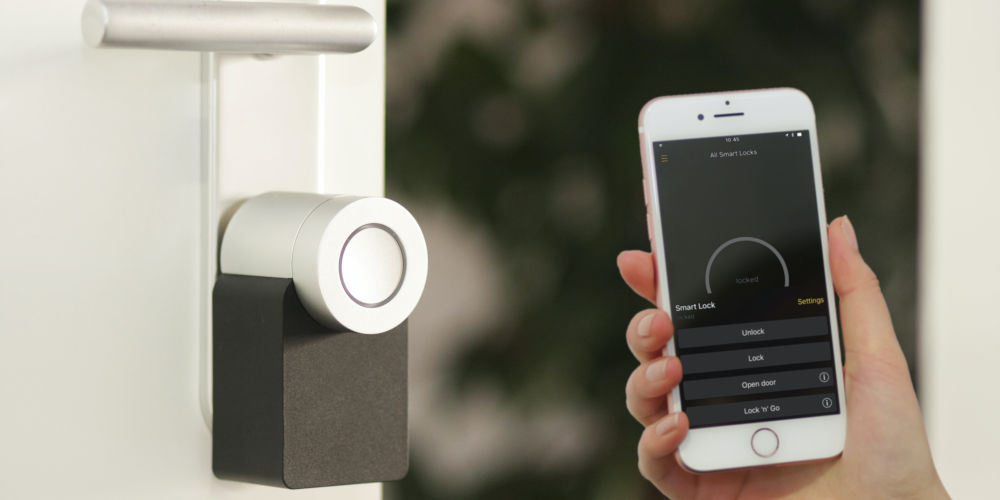
Are smart door locks your safest option?
It’s easy to dismiss smart locks and claim the traditional deadbolt locks are superior. However, the situation depends on multiple factors. A door lock is only as secure as the door itself. You can install the most expensive lock but have a rotting frame that’s easy to compromise.
When properly installed and used, the best smart door lock can be at least as secure as good-quality traditional locks, if not more secure. Of course, you must take the proper precaution and check it regularly to ensure it’s in good repair.
There are risks involved with using digital locks, but they are different to those of a traditional lock. So, you need to weigh the pros and cons of the two options for your situation and not just in general.
Advantages of smart locks
As with all IoT devices, smart locks have many advantages, including:
- Never worry about losing keys
- No need to compromise your home’s security by leaving keys for visitors in locations where burglars can get to them
- Provide remote access to your home for others regardless of where you are
- Even if your phone is lost, damaged or out of battery power, there are alternative ways to gain entrance to your home
- Many integrate with other smart home security solutions like security cameras and smart doorbells
- The discreet high-tech appearance of a smart lock may be a deterrent for opportunistic thieves
- Huge range of makes and models to choose from.
Disadvantages of smart locks
There’s a lot to love about smart locks. That said, they do have some potential disadvantages, which are worth considering before you rush out and buy one. These include:
- Smart locks cost at least £100, with most ranging between £200 and £300, and that’s before you add the installation cost
- Loss or theft of your smartphone can bring security vulnerabilities
- You might not feel safe being too reliant on your smartphone, and having a smart lock may exacerbate this issue.
- Issues with the battery or a Wi-Fi outage could render the smart lock comparable to a traditional lock
- Can be hacked by tech-savvy criminals
- A burglar could forcefully remove or break it.
Should you invest in a smart lock?
While you can only answer this, you should consider the potential benefits and vulnerabilities. Doing so will help you discover the best solution for your front door and your home.
Some will see smart door locks are yet another unnecessary item that offers only a little improvement in home security. Others will embrace smart looks as they see them as the next step in building a fully automated home.
Are smart door locks safe? Yes, and many offer an improvement in security over traditional door locks.

